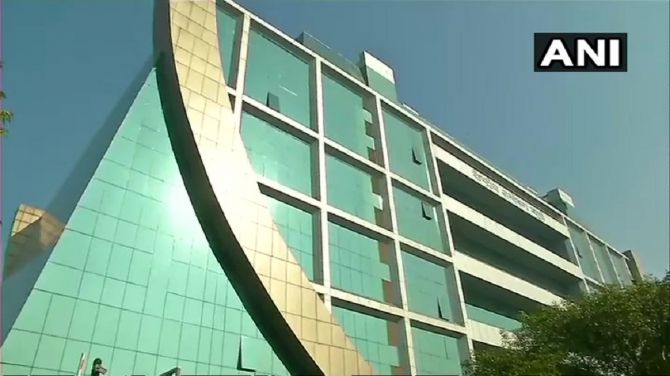Highlighting withdrawal of general consent for Central Bureau of Investigation probe by many states, a parliamentary committee has said that an existing law governing the federal probe agency has "many limitations" and there is a need to enact a new legislation to define its status, functions and powers.

The federal probe agency was established in 1963.
It is governed by the Delhi Special Police Establishment Act, enacted to regulate the functioning of the special police establishment set up in 1941 to investigate cases of bribery and corruption involving purchases and supplies during World War II.
The department-related parliamentary standing committee on personnel, public grievances, law and justice said that according to the provisions of the DSPE Act, the consent of the state government is a prerequisite for any investigation by the CBI and as on date, nine states have withdrawn the general consent.
"The committee feels that the Delhi Special Police Establishment Act has many limitations and therefore, recommends that there is a need to enact a new law and define the status, functions and powers of the CBI and also lay down safeguards to ensure objectivity and impartiality in its functioning," it said.
The panel said that vacant posts in the CBI are not being filled up at the required pace and recommended that "every effort should be made to fill up vacancies at the earliest".
A total of 1,709 posts are vacant in the CBI against its sanctioned strength of 7,295.
"The committee is of the opinion that vacancies in the cadres of executive ranks, law officers and technical officers will unquestionably increase pendency of cases, hamper the quality of investigation and ultimately impact the effectiveness and efficiency of the agency," the report said.
The panel further recommended that the director of CBI should monitor the progress made in filling up of vacancies on a quarterly basis and take necessary measures to ensure that the organisation is sufficiently staffed.
On being asked about the reasons for delay in filling up of vacancies, CBI informed the committee that it is not receiving sufficient nominations of officers from Central Armed Police Forces and state police which have traditionally been a major source of induction, particularly up to the rank of inspector in the organisation, it said.
"CBI further said that CAPFs and the state police are under increasing pressure within their own jurisdictions and hence have expressed challenges in sparing officers and personnel to the same extent as in the past," the report said.
The committee, in its previous reports, had recommended CBI to reduce its dependence on deputationists and strive to recruit permanent staff in the ranks of inspector of police and deputy superintendent of police.
"However, CBI showed unwillingness and justified its stand citing that deputationists bring in fresh ideas, novel strategies and varied skill sets with them and that direct recruitment at higher levels would affect career progression," it said.
The committee said it fully agrees with the view of CBI that deputationists benefit the organisation with their expertise and skill sets, however, feels that an organisation should keep the mode of recruitment through deputation to minimum.
It said that the details of cases registered with the CBI, the progress made in their investigation and the final outcome are not available in public domain and asked the agency to put in public domain the details to the extent possible.
The committee observed that the annual report of CBI is also not accessible to the general public.
"The committee is of the opinion that in this age of transparency, every public authority should strive to proactively disclose the data available with it or held by it in public domain to the extent possible," said the report tabled in the Parliament recently.
It said that providing access to information will not only empower the citizens but will also make the functioning of CBI more accountable, responsible, efficient and transparent.
The committee, therefore, recommended CBI to publish case statistics and annual reports on its website.
The panel also reiterated its recommendation that CBI should maintain a case management system which would be a centralised database containing details of cases registered with it and the progress made in their disposal.
"The case management system should also enable tracking of the progress of each individual case and should be, by and large, accessible to the general public," the report said.












 © 2025
© 2025